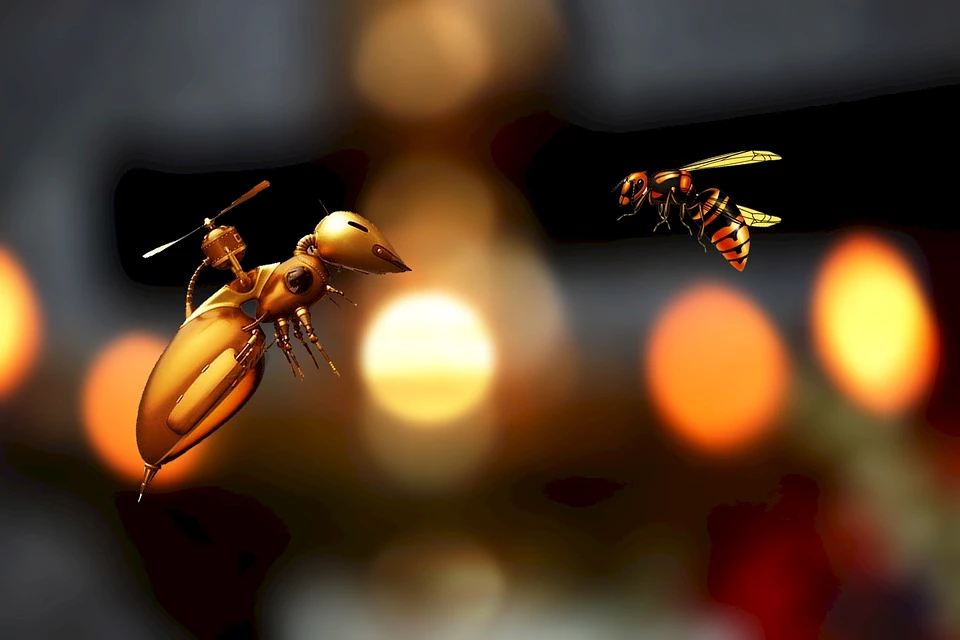Robot swarm intelligence
Robot swarm intelligence describes the self-organised work of several individual robots. These are programmed in such a way that they can perform a sequence of actions without knowing the correct order in advance. Through communication among the robots, the best sequence is determined step by step.
The origin of the idea of collective action by robots comes from the animal kingdom. Bees or birds also form into swarms because the intelligence of the whole swarm is superior to that of the individual. A major advantage of robot swarms is the flexibility and durability of the system. If one robot fails, other robots can recognise this condition and adjust their actions accordingly.
 The idea of robot swarm intelligence comes from the animal kingdom.
The idea of robot swarm intelligence comes from the animal kingdom.© https://pixabay.com/de/illustrations/biene-abstrakt-insekt-natur-honig-2984342/
Prerequisites for use
Sensitisation of employees
Swarm intelligent robots do not replace human employees, they support humans and relieve them of monotonous, dangerous and unhealthy work tasks. This gives humans more time for planning and administrative tasks. For the acceptance of learning robots, this way of thinking must be exemplified and internalised.
Risk assessment
According to the Occupational Health and Safety Act, in order to avoid hazards to the safety and health of employees, the employer is obliged to carry out a risk assessment. Hazards are to be identified and assessed in order to derive effective protective measures.
